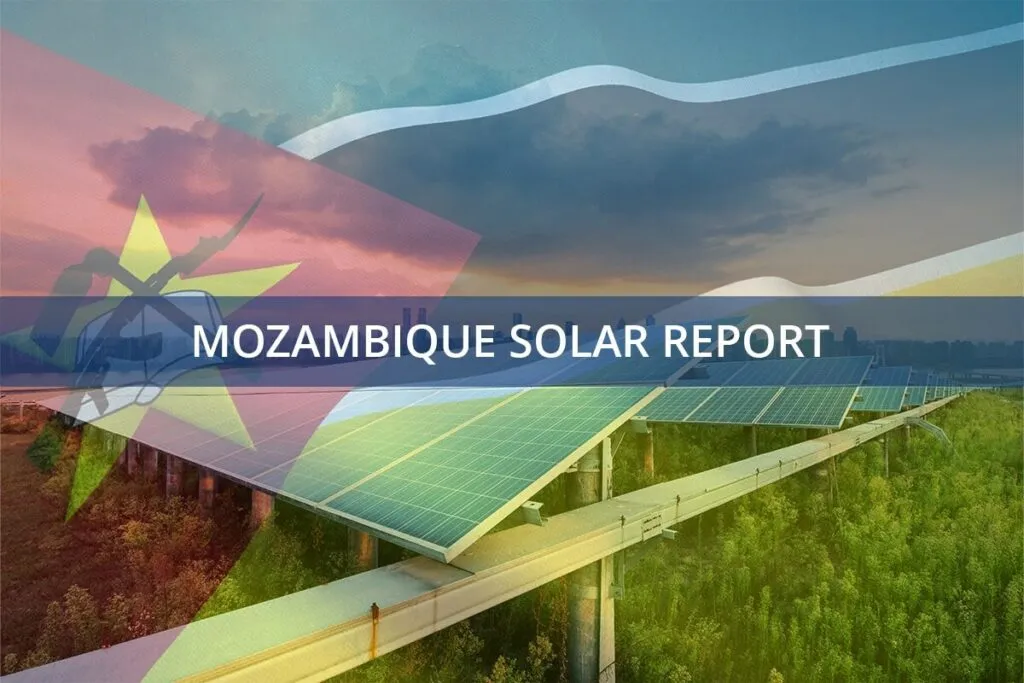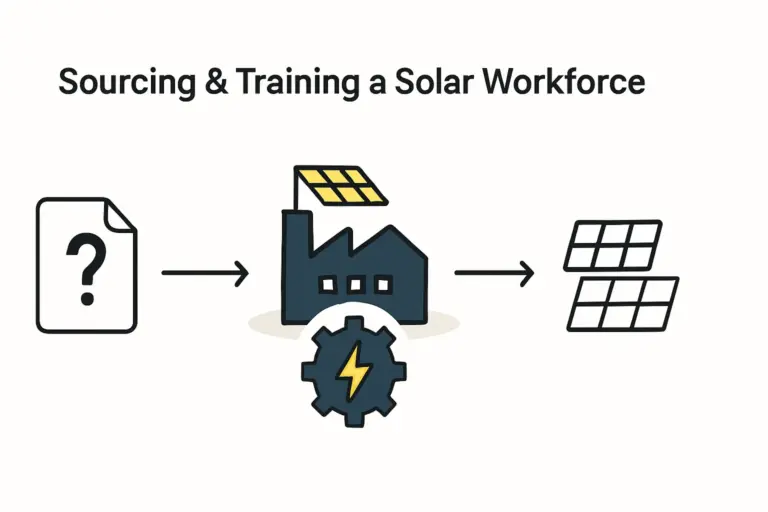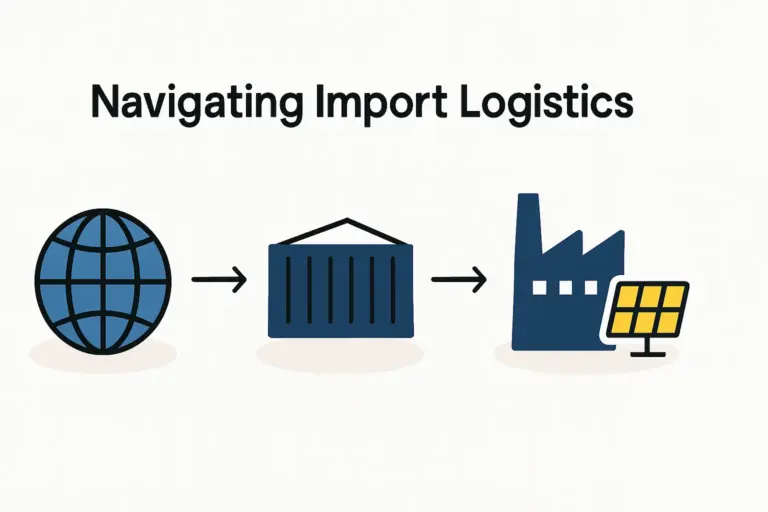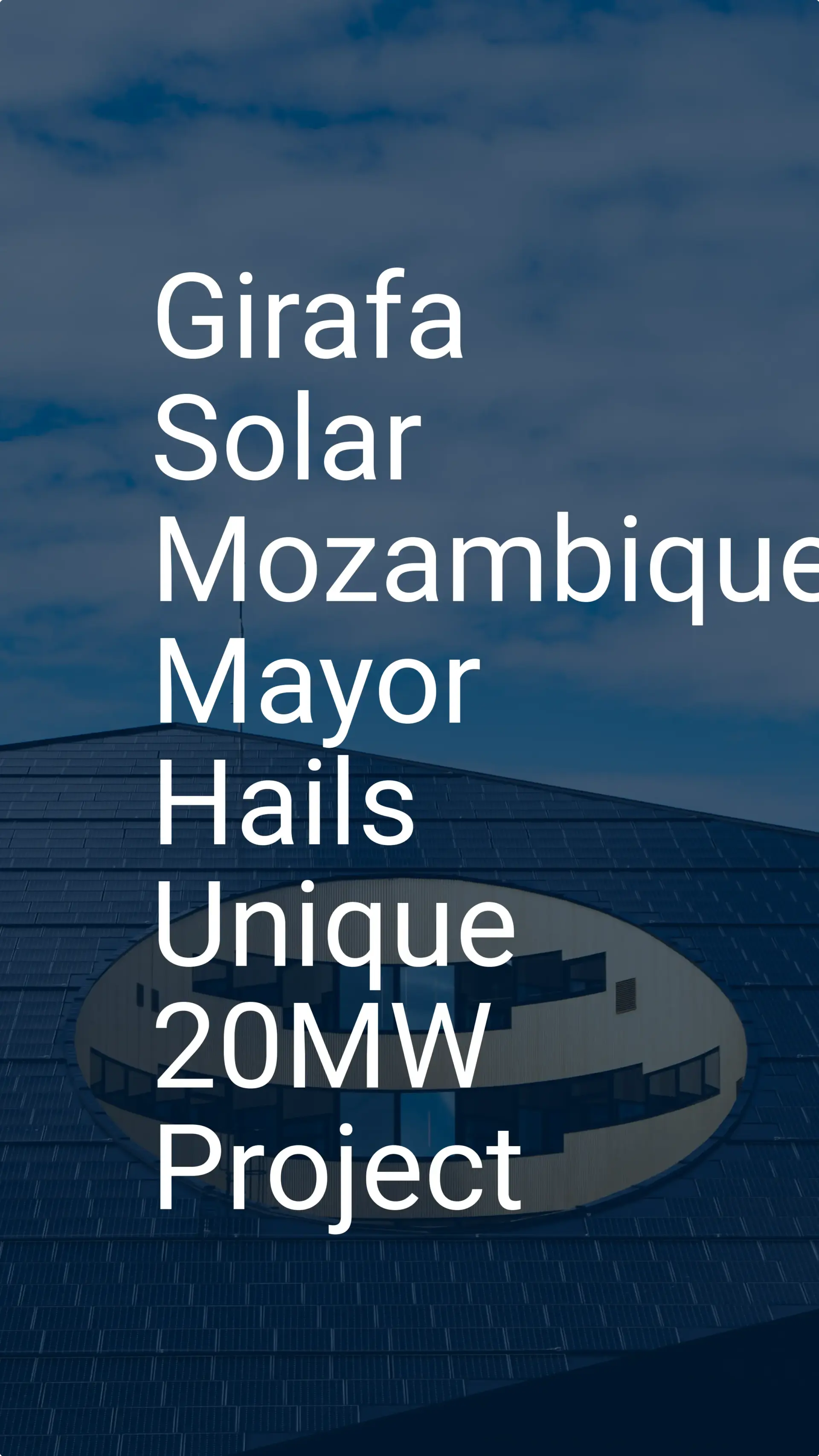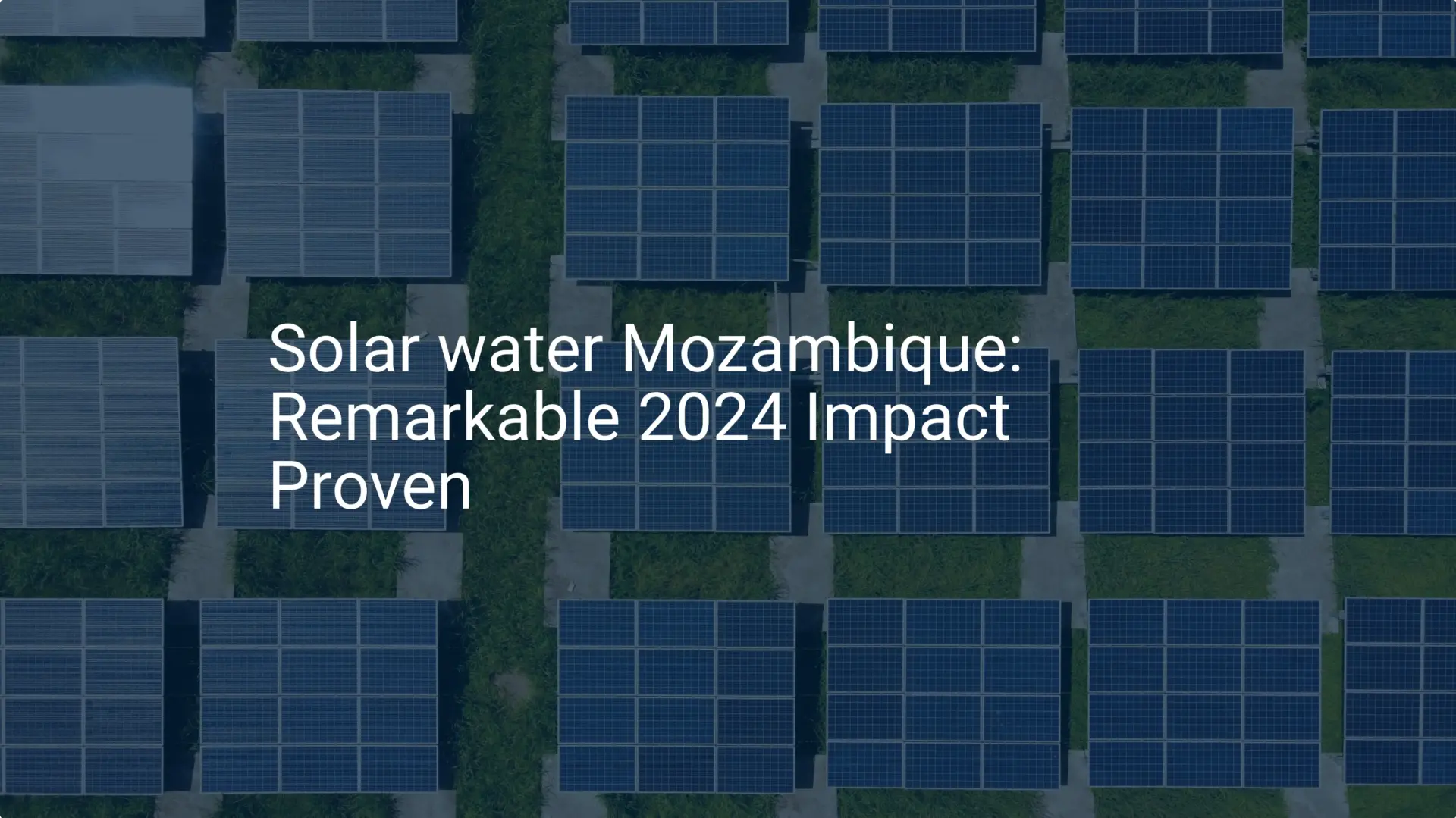Mozambique has set an ambitious goal: universal electricity access for its population by 2030. With a national access rate of just 34%—and significantly less in rural areas—this policy creates one of Africa’s most compelling and structured market opportunities for solar energy.
For an entrepreneur or investor, this is more than an energy project; it’s a clear signal for a decade-long industrial and commercial opening, backed by government strategy and international support.
The primary challenge is not a lack of demand, but of infrastructure. Here, a strategic business approach—local solar module manufacturing—can directly align with national priorities and create a powerful competitive advantage over simply importing modules. This article explores how a local manufacturing presence can effectively supply Mozambique’s electrification programs and navigate its public tender landscape.
Understanding Mozambique’s Energy Landscape
To grasp the scale of the opportunity, it’s essential to understand the framework driving it. The government’s National Electrification Strategy (2018-2030) is the central policy document. Its objective is to connect approximately 10 million new households and businesses, with a strong emphasis on off-grid and mini-grid solutions for remote regions.
Key actors and dynamics include:
Fundo de Energia (FUNAE): As the national energy fund, FUNAE is specifically tasked with financing and implementing off-grid rural electrification projects. It is a primary customer for solar home systems, community power projects, and solar-powered infrastructure like schools and health clinics.
The Unmet Demand: Vast areas of the country have high solar irradiation but no access to reliable power. This gap is a fundamental driver for decentralized solar solutions, as extending the national grid is often economically unfeasible.

This geographic and demographic reality makes demand for solar modules a core component of the national development plan, not just a speculative market trend.
The Strategic Advantage of Local Manufacturing in Government Tenders
While importing finished solar modules is an option, establishing a local assembly facility offers distinct advantages, particularly when competing for government-backed projects managed by entities like FUNAE.
Meeting Local Content Requirements
Public procurement across many emerging markets increasingly favors suppliers who contribute to the local economy, and tenders often include scoring criteria for ‘local content.’ A domestic assembly plant directly meets this requirement by creating jobs, developing technical skills, and adding value within Mozambique—a factor that can be decisive in a competitive tender.
Logistical Efficiency and Cost Control
Importing finished solar panels is a complex logistical exercise. The modules are bulky, fragile, and subject to high shipping costs and potential damage during transit. In contrast, importing raw materials—solar cells, glass, EVA, backsheets, and aluminum frames—is far more efficient. These components can be packed more densely and are less prone to damage, reducing freight costs and insurance premiums. A local facility can then produce modules on demand, streamlining the supply chain for large projects.

Supply Chain Resilience
Recent global events have highlighted the fragility of international supply chains. A local assembly operation provides a buffer against shipping delays, port congestion, and international trade disputes. This ability to ensure a consistent supply of modules offers a significant advantage when fulfilling time-sensitive government contracts.
Navigating the Public Tender Process
Successfully bidding for government projects requires a clear understanding of the process. While specific requirements vary, a typical FUNAE tender involves several stages:
-
Pre-Qualification: Bidders demonstrate their financial and technical capacity. An established or planned local production facility serves as a strong indicator of technical seriousness.
-
Technical Bid Submission: This stage requires detailed specifications of the proposed solar modules, quality certifications (e.g., IEC 61215), and production plans.
-
Financial Bid Submission: Bidders submit a detailed cost breakdown. Here, local assembly can create a more competitive cost structure through lower shipping expenses and potential import duty advantages on raw materials over finished goods.
-
Evaluation: Bids are scored based on technical compliance, price, and, increasingly, local economic impact.
A common hurdle for new entrants is meeting the technical specifications in tenders without prior manufacturing experience. A detailed process and quality control plan, developed with an experienced technical partner, is critical.

Establishing a Local Solar Module Assembly Operation
The prospect of building a factory may seem daunting, but a modern, semi-automated assembly line can be a focused and manageable enterprise.
Finding the Right Scale
For a market like Mozambique, a small to medium-scale assembly line with an annual capacity of 20 to 50 MW is a practical entry point. Such a facility is large enough to supply significant projects but does not require the massive capital investment of a gigawatt factory. Experience from J.v.G. turnkey projects shows that setting up a turnkey solar manufacturing line of this size can be achieved in under 12 months, from planning to first production.
A factory of this scale can often be housed in an existing industrial building of 2,000–3,000 square meters and operated by a trained local workforce of 25–40 employees per shift. The solar panel manufacturing process is a series of well-defined steps—from cell stringing to lamination and framing—that can be mastered with proper training and reliable equipment.

Planning the Investment
Understanding the cost to start a solar panel factory is a crucial first step in evaluating this business model. The investment covers machinery, facility preparation, raw material sourcing, and operational working capital. A thorough feasibility study is essential to align the investment with market-specific revenue projections.
Key Considerations for Success in the Mozambican Market
Financing: Securing funding is a primary challenge. A strong business case that emphasizes alignment with national development goals can attract interest from development finance institutions (DFIs), climate funds, and impact investors.
Skilled Labor: While a local workforce is a key asset, initial training is essential. Turnkey solution providers often include comprehensive training programs for operators and technicians as part of the equipment package.
Quality and Certification: To be a credible supplier for government and international projects, the modules produced must meet international quality standards, such as those set by the IEC. Building a robust quality management system is non-negotiable.
Product Adaptation: A local manufacturer can design and produce modules specifically suited for Mozambique’s climate, which may include high temperatures, humidity, and seasonal dust. This level of adaptation provides a further advantage over generic imported products.
Frequently Asked Questions (FAQ)
What is the typical investment for a small-scale module factory?
While the investment varies based on capacity, automation, and location, a 20-50 MW semi-automated line typically requires several million US dollars for machinery and initial setup.
How long does it take to become operational?
With a clear plan and an experienced technical partner, a factory can move from a final investment decision to its first module production in approximately 10 to 14 months. This timeline includes machine procurement, shipping, installation, and staff training.
Do I need a technical background to start this business?
No. While technical understanding is beneficial, the entrepreneur’s role is strategic. The key is to partner with a reputable engineering and technology provider who can manage the technical implementation, process setup, and training. The pvknowhow.com platform is designed to provide this structured guidance.
What are the main risks involved?
Risks include potential changes in government policy, challenges in securing long-term financing, and competition from large-scale international importers. A strong local strategy, built on quality and alignment with national priorities, is the most effective way to mitigate these risks.
Conclusion and Next Steps
Mozambique’s National Electrification Strategy is more than a policy; it’s a long-term market signal. It creates a predictable, government-backed demand for solar energy solutions for the remainder of the decade. For the discerning investor, the opportunity lies not in simply trading imported goods but in building local industrial capacity.
A domestic solar module assembly facility offers a clear competitive advantage by meeting local content preferences, improving logistical efficiency, and building supply chain resilience. This strategy transforms a business from a simple supplier into a strategic partner in achieving Mozambique’s national development goals.
To properly assess this opportunity, the next logical step is developing a comprehensive business plan for solar panel manufacturing tailored to the Mozambican context. This will provide the financial clarity and strategic roadmap needed to move forward with confidence.

